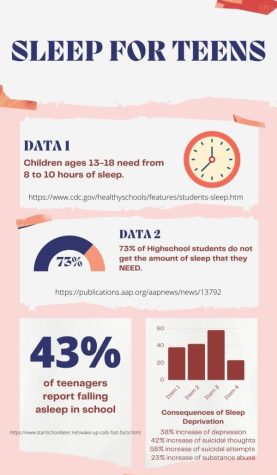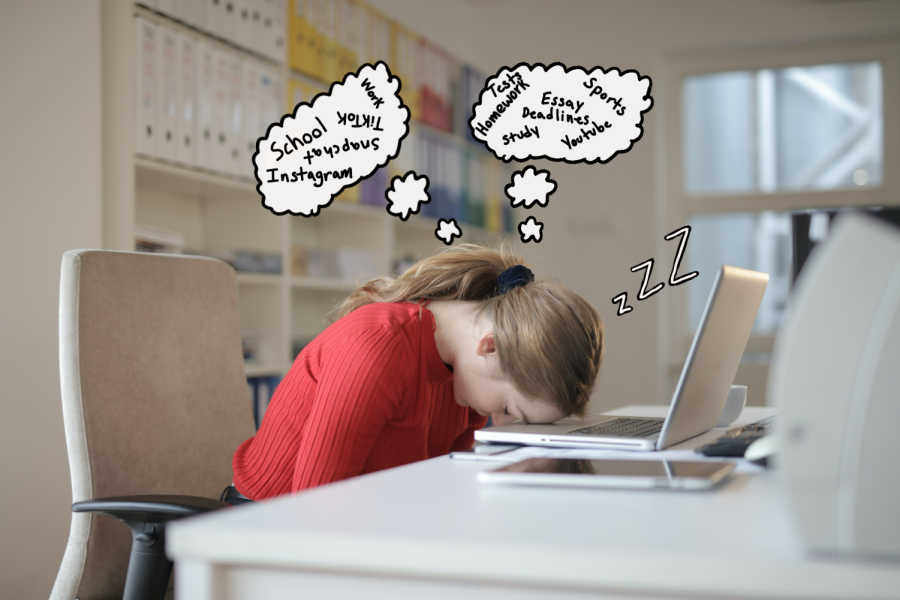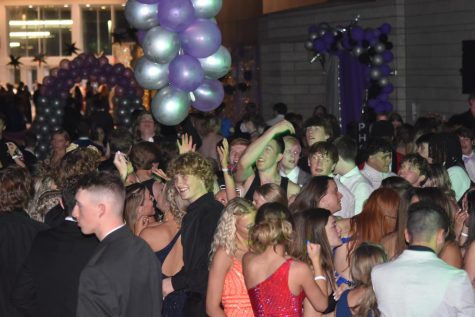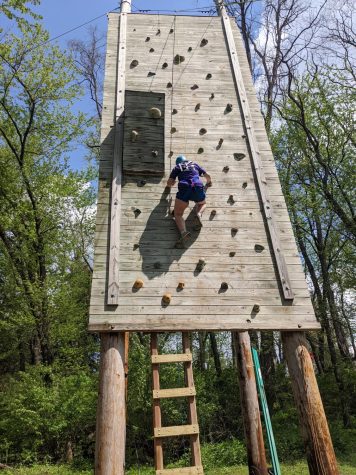In Need of ZZZ’s
Liberty students are constantly found dozing off in the middle of class. Why are the students so tired?
Liberty students are constantly found dozing off in the middle of class. Why are the students so tired?
Falling asleep in highschool seems like a classic movie scene, but does it really happen during school? Whether it’s just dozing off for a few minutes or full on head-down knocked-out, it does happen. It is pretty common, especially nowadays, from the lack of sleep teenagers are getting each night.
The problems stem from both controllable and uncontrollable forces. According to a Healthline article, as kids grow older their bodies tell them to stay up later at night and wake up later in the morning.
Corey Holman, junior, is not strongly affected by a lack of sleep, but he did mention how his productivity starts after nightfall.
“I’m usually doing stuff late at night because I’m not tired at that time,” he said.
If patterns of staying up late are having a big effect on the school day, there are habitual changes that can be implemented. Mrs. Ungs, Spanish, spoke about the problem and gave her input.
“I would say [to students] to set a time that you turn off screens and notifications that will allow at least 8 hours of sleep and stick to it! Your body may take some time to adjust to a new and regular bedtime, but it will be totally worth it,” said Ungs.
The blue light from phones convinces the brain that it’s not night yet and makes it even harder to go to sleep. Many teens experience this issue due to phone usage at night and before bed. No matter what you’re doing on your phone, it can negatively affect sleeping habits.
Ungs also noted that social media and games have kids hooked.
“It sucks up so much time and attention it’s easy for kids to be up until early morning hours playing games, or on social media when they really should be sleeping. Tik Tok and Snapchat are the worst culprits I see students addicted to and unable or unwilling to turn off or look away from,” she said.
It will be difficult to totally change one habit, but limiting the time on the screens can add so much extra time to be asleep. The school day is already 8 hours of staring at a computer screen, so there should be time in one’s day to lay off the screen. Each person interviewed mentioned that they sleep with their phone in their bed and they know that spending less time on it would help.
Another contributing factor is caffeine: just one late night and early morning implemented with caffeine can be the start of a terrible pattern. The body can start relying on artificial energy, which would make it harder to feel awake.
Although, everyone has their own experiences as to why they will not get enough sleep; it is hard to make changes.
Ungs said a huge factor she notices in stealing sleep are time commitments.
Ungs said: “ I also think kids and teens are often over scheduled and have a lot of evening activities and commitments on top of homework, studying, jobs, or family time. Time management can be difficult and some extracurricular activities require an unhealthy amount of time.”
Carlee Wilkins, sophomore, has a lot on her plate with being a student athlete and managing all other portions in her life. She has a struggle to get enough sleep .
She said: “For me personally, I have anxiety, which has led me to have insomnia. It comes and goes but there is nothing I can really do about it.”
It is important to be patient with students when they are tired because activities can be very draining and carry on into the next day.
Jilly Nielson, sophomore, mentioned what contributes to her lack of sleep.
“I think what affects my sleep are my extracurriculars, homework, and social media/being on my phone,” Nielson said.
Many factors can steal all of the hours kids need to sleep. The CDC, when speaking about the health of teenagers, noted that kids from the ages of 13-18 need 8-10 hours per 24 hours. Wilkins, Holman and Nielson all said they only get a total of around 6 hours per night, and each said the lack of sleep has a strong effect on them.
The problem with a lack of sleep is that it strongly affects a person in both short term ways and long term ways. Students that go to school exhausted will often increase the inability to concentrate, poor grades, anxiety, and depression.
Wilkins commented about how her school day is affected by sleep.
She said: I don’t fall asleep in school but if I’m really really tired it’s hard to focus and follow along in class.
Nielson had a similar response.
“I don’t fall asleep in school but I think my tiredness can affect my learning because I think about sleeping more than the schoolwork, and if I fall behind I usually just ask a classmate,” Nielson explained.
Holman noted how the end of the day can be difficult.
He said: “4th period is a struggle after lunch, I’ve gotten close but I don’t think i’ve actually fallen asleep”
Not only does tiredness affect the ability to focus, but also can decrease motor skills ability and make people more susceptible to illness, which just does not work with all of the things students do daily.
Even though this problem does not have a direct solution, there are tips and tricks that can help students feel more rested.
The first tip is to keep a phone off the bed. Not only is it concerning the unknown effects of that type of device on the body, but it is a clear distraction. It is a temptation being so close to reach over and grab that it is probably keeping people up longer than they want to be. If the first objection is that it is an alarm, it’s important to remember that buying an alarm clock is also an option.

The second tip is to avoid staying up super late to do homework. Instead try to get better sleep and wake up early to complete what needs to get done. This can be difficult, but once stuck to a pattern it can be extremely helpful.
Ungs tries to put less of a heavy workload on her students so they are not battered down by homework.
“I try to help by not assigning homework because I know time is limited and precious outside of school. Instead of spending time on homework for my class I want them to be able to spend time with family or friends, exercise, have some downtime to relax, or participate in activities they love. I never want my class to be a source of added pressure or stress that takes away from time that should be spent enjoying being a kid. I try to help by encouraging them to be productive during class so they don’t have homework and to curb their use of phones to try to break some bad habits,” she said.
The last tip is to figure out what is best for you.
Ungs said: “Learning to prioritize your time and tasks and creating healthy boundaries with technology and time commitments is a very important life skill.”
If everyday is becoming difficult because of feeling drained, it may be important to consider that changes should be made to help health.

Jocelyn is a senior at Liberty and this is her third year on the newspaper staff. She participates in numerous sports that she would not like to name....

Noah is a senior at Liberty. He is in newspaper, broadcasting, and yearbook. He is a part-time Starbucks barista and a full-time baddie.













